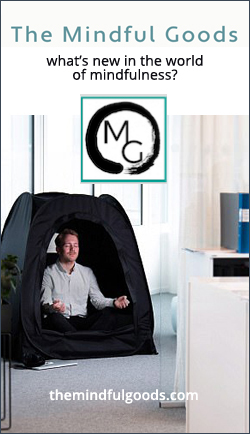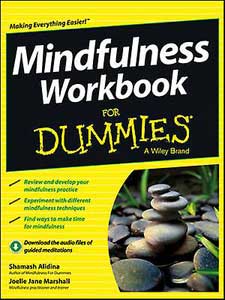As a leader, to become more aware of our own participation in our relationships with our team, both as a whole and also with each individual member, requires that we begin to notice the ‘position from’ or manner in which we listen – i.e. do we listen passively, actively, blankly, judgmentally, as a potential helper, or in some other way? When listening to anyone (whether leading them or not), if we can begin to notice our own private experience and inner sensations during listening, then we can begin to feel more capable and balanced in how we participate in the relationship and its needs – this helps to make our personal and professional relationships vehicles for increased efficiency and productivity. Mindfulness helps us create these new conditions and behaviors, both internally and within our greater workplace culture.
By putting a portion of one’s attention on the speaker and a portion on our own internal reactions to what is being said, it then becomes possible to discover our habitual reactions: are we consistently in a rush to help, or do we drift in our interest, or do we space out completely? These previously unconscious reactions have important ramifications for the quality and effectiveness of our interactions, and mindfulness or undistracted attentiveness, greatly improves our ability to send and receive important information. As we bring our attention to ‘what it is that we actually do’ internally, then we can begin the process of deliberately adjusting how we listen – as a byproduct of our increased attentiveness, we will naturally create and surround ourselves with more capable employees, we will embed increased effectiveness as our culture’s norm, and we will realize countless small and large improvements in overall productivity.
Knowing and practicing the capacity to deliberately and fully direct our attention is immensely empowering and quickly builds an individual’s and/or team’s confidence. Teams that can truly notice what works and what does not work in their micro-interactions, in turn have an increased responsiveness and sensitivity that makes timely adjustments possible in the event of miscalculations. Mindfulness minimizes oversights and sloppiness during processes involving numerous essential details.
Ironically, the capacity to be more effective in the present moment also creates circumstances for more fully appreciating how best to leverage the present moment for longer-term productivity needs, things like maintaining a key business relationship far into the future.
Mindfulness experientially slows down situations that feel chaotic and allows us a greater opportunity to make better choices when under pressure. Ironically, the capacity to be more effective in the present moment also creates circumstances for more fully appreciating how best to leverage the present moment for longer-term productivity needs, things like maintaining a key business relationship far into the future. When mindfulness is marshalled in this capacity, we may not always yield the highest immediate returns, but the tertiary returns can be enormous – things like continued business, positive word-of-mouth recognition within our market, being more attuned and responsive to how our business is perceived publicly, etc.
Mindfulness also creates the conditions in which we highly value having multiple perspectives when making crucial decisions regarding workplace productivity. Whether or not these new perspectives apply directly to a given issue does not seem entirely necessary, but rather these new perspectives – simply by being new and fresh – help to dislodge old, habitual, and limited ways of thinking. The new perspectives that result from implementing mindfulness help to make space for what is truly needed in any given situation, and sometimes this is simply more spaciousness itself; when a change in direction requires something both new and specific, spaciousness makes room for the best decision to be applied in creative, innovative, and pragmatic ways.
Whether applied directly or indirectly, mindfulness creates the greater likelihood of flexible and creative leaders and employees, and this in turn translates into greater workplace satisfaction, increased results, and improved bottom-line productivity. Mindfulness at its core is an increased responsiveness, responsive in the most effective, appropriate, and productive way possible.
Jonathan Reynolds is Principal at Mindful Life, Mindful Work (www.mindfullifemindfulwork.com)



